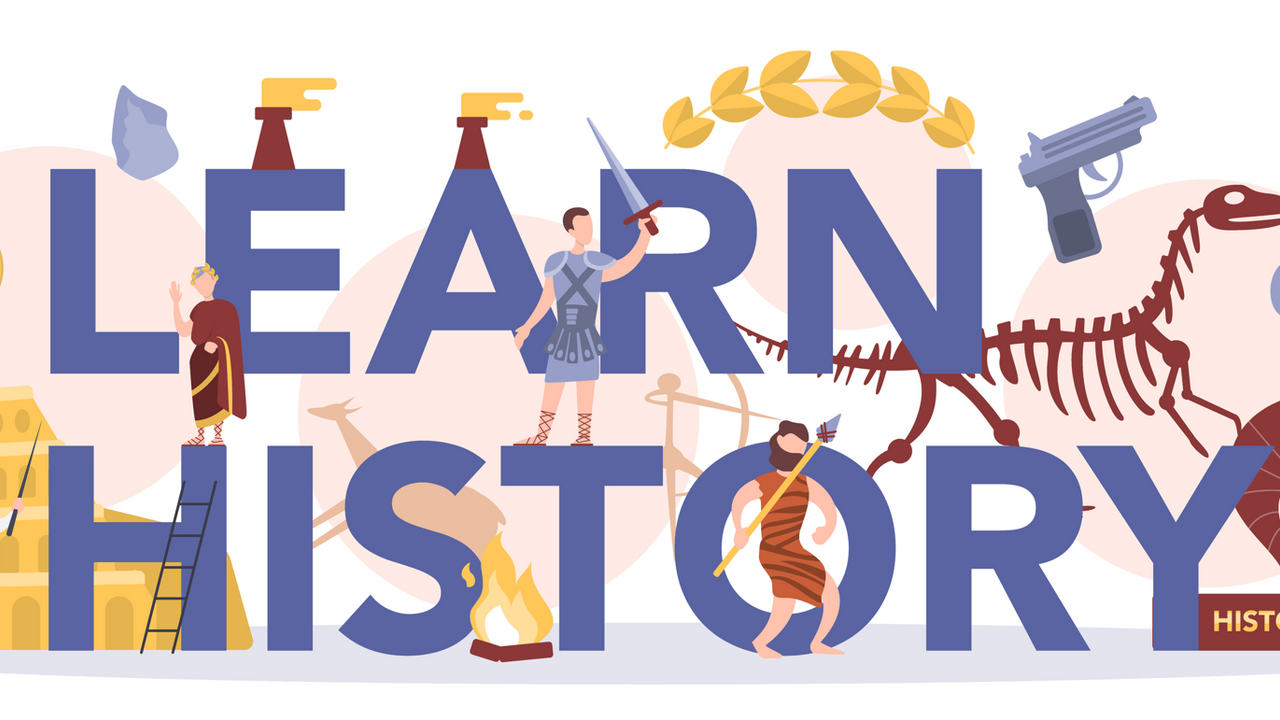The BEST US History Essential Questions (EQ's) to ask students!

A H-U-G-E part about being a social studies teacher, no matter what grade level(s) your teaching, is asking your students essential questions (also known as EQs).
Any high-quality lesson plan, course outline, etc. when it comes to U.S. history, world history, civics, or pretty much any social studies subject for that matter will have an ample number of essential questions built into it. Personally, I find it ideal to have at least one essential question ready to go for each one of my lessons, whether it's one that's already built-in to the presentation or one that isn’t, I always have at least one EQ ready to go! It doesn't matter what important historical topic you’re teaching your students about, whether it’s the American Revolution, Louisiana Purchase, Industrial Revolution, the Great Depression, Civil Rights Movement, etc., etc., essential questions are vital for student learning and comprehension of the content being presented to them.
And if you're wondering what the heck exactly is an essential question anyways?!? Don't worry, you're not alone ...and truth be told, I've googled it myself on more than one occasion ;)
I thought it'd help to break this article out into a few pieces:
First, WHAT is an essential question?
- Well, as it'd turn out, according to Fitchburg State University (link below), "essential questions are overarching or topical questions that guide the lesson plan. In terms of lesson planning, these questions promote conceptual thinking and add coherence to a lesson... There may be anywhere from one (1) to three (3) open-ended questions while a unit may include up to eight (8) or more."
Second, WHEN is the best time to ask an essential question?
- ANYTIME!! well, almost...
- Ok, this is subjective... for example, I've found that for classes in the morning, when students are more alert (and willing to pay attention!), I can get a good amount of student participation no matter when I ask an EQ throughout the course of a lesson -HOWEVER- for afternoon classes, it's been my experience that my students are less, shall we say, "attentive"? ...and because of this, I try to work in EQ's sometime in the first half of the period (while I still have most students attention), as opposed to the back half of a period when some of them may be off in "la-la land"
Third, WHY are asking essential questions at the cornerstone of any great American history or social studies lesson?
- They promote student engagement
- EQ's often aren't easy-to-answer and help grow your students critical thinking skills and abilities
- Students are challenged to consider things like historical context, the information presented to them through primary sources and secondary sources, cause and effect correlation, etc.
- You get a much better idea as the teacher which students comprehend and understand the content and which ones may be struggling
- AND they help reinforce the big ideas, concepts, and theories of a lesson (which helps learning retention!)
Fourth, HOW do you ask essential questions that accomplish all of this??
- Ask questions that:
- Often have no clear answer, rather they have several plausible answers
- Require evidence, analysis, logic and reasoning... again, because great EQ's often have numerous plausible answers
- Raise additional, follow-up questions to responses that are provided
- Require students to pause and think for a moment
- May initiate further conversation/debate
- Incorporate a lesson's learning (main idea/theme)
And lastly, I thought I'd provide some examples of GREAT essential questions.
Example #1 - when teaching students about Colonial America:
"What are some of the earliest forms of self-government that were implemented by the colonists?"
Example #2 - when giving a lesson on the Constitutional Convention:
"Why was the Virginia Plan considered controversial and the source of much debate at the Constitutional Convention?"
Example #3 - during a lesson on the Emancipation Proclamation:
"Why was the timing of the Emancipation Proclamation, issued by President Lincoln, historically significant?"
Example #4 - as your teaching students about the Cold War:
"What are some of the common traits of a communist government?"
It literally, does NOT matter what time period of United States history, or world history you’re teaching about: ESSENTIAL QUESTIONS ARE NECESSARY FOR ANY LESSON TO BE HIGH-QUALITY, ENGAGING, & EFFECTIVE!!
And that's exactly why I've successfully incorporated them into many of the lessons that I've personally designed and used with my own students. Well-curated essential questions on U.S. history will ignite student curiosity, challenge them to think about the content they just learned about, demand they use logic and reason with their responses, and compel them to think critically!
To check out the article written and published by Fitchburg State University on essential questions, click this link (it's a Word doc, not an actual website link): https://www.fitchburgstate.edu/media/5903
Receive a FREE Week of Lesson Plans!
Join my mailing list to receive exclusive offers and promotions, the latest tips, and news on product updates!
Don't worry, your information will NEVER be shared.
I hate SPAM too and will NEVER sell it to a third-party. EVER







